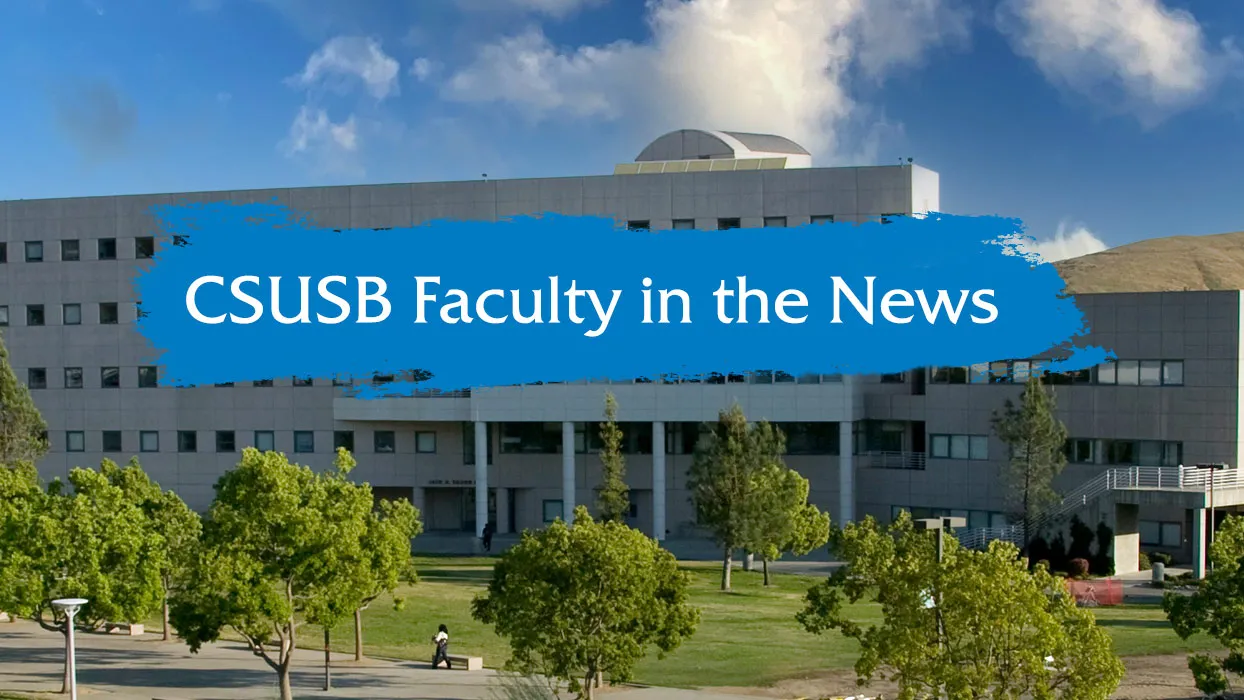NOTE: Faculty, if you are interviewed and quoted by news media, or if your work has been cited, and you have an online link to the article or video, please let us know. Contact us at news@csusb.edu.
How a regional college turned its cybersecurity program into a national leader
WorkingNation
Oct. 13, 2023
Building a diverse cybersecurity workforce and advancing social mobility is key to Cal State University San Bernardino’s goals.
“We can’t be selective and think that everything is going to come from the Bay Area or the Beltway. We need to show that there is talent, and you just have to know how to reach the talent,” says Tony Coulson, Ph.D., a professor in the program and the execute director of the Cybersecurity Center (CSC) at CSUSB.
Statistic of the week: A quarter-century
USA Today
Oct. 13, 2023
Reporter Will Carless’ news summary of the past week included mention of the retirement of Brian Levin, director of CSUSB’s Center for the Study of Hate and Extremism and professor of criminal justice after 25 years: “That’s how long Professor Brian Levin led Cal State San Bernardino’s Center for the Study of Hate and Extremism before his retirement this week.
“Levin is one of the foremost experts on hate and extremism in the country, if not the world. CSUSB’s hate crime reports are a bellwether used by academics and reporters alike. He will be missed!”
Expert departure
BNN (Hong Kong)
Oct. 13, 2023
Columnist Nitish Verman wrote, “In other developments, Professor Brian Levin, a leading expert on hate and extremism, is retiring from Cal State San Bernardino’s Center for the Study of Hate and Extremism. CSUSB’s hate crime reports, which are highly regarded by researchers and reporters, have provided valuable insights into the nature and prevalence of hate crimes, and Professor Levin’s departure will undoubtedly be keenly felt.”
Modeling mate choice in a small-scale community: Applying couple simulation in the U.S. and Conambo, Ecuador
Evolution and Human Behavior
Cari Goetz (psychology) was part of a team of researchers who recently published a study that examined human mate choice. For the study, the researchers used “couple simulation, an agent-based modeling technique, to compare models of mate choice across both a U.S. sample (n = 1678) and a sample of k = 15 couples from Conambo, Ecuador—a relatively remote community of horticultural-foragers in the Ecuadorian Amazon.”
These news clips and others may be viewed at “In the Headlines.”
